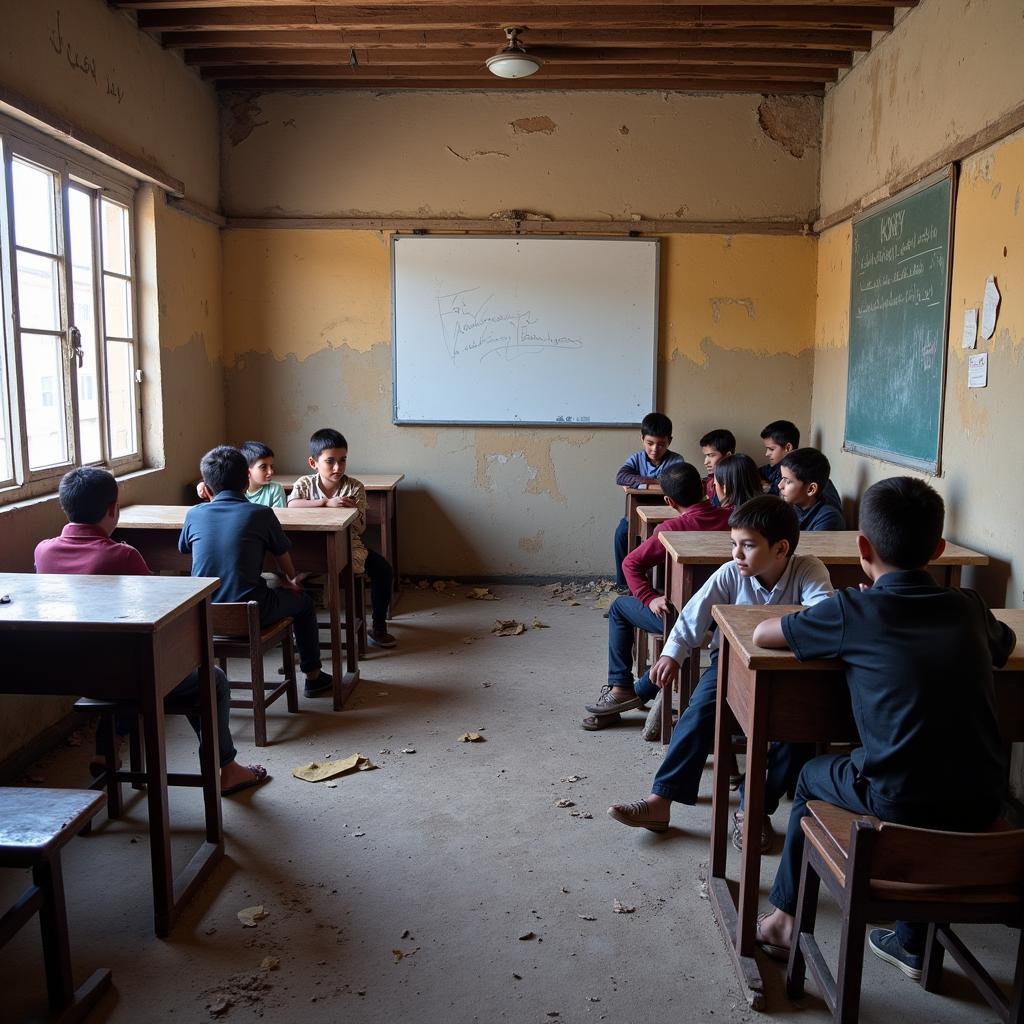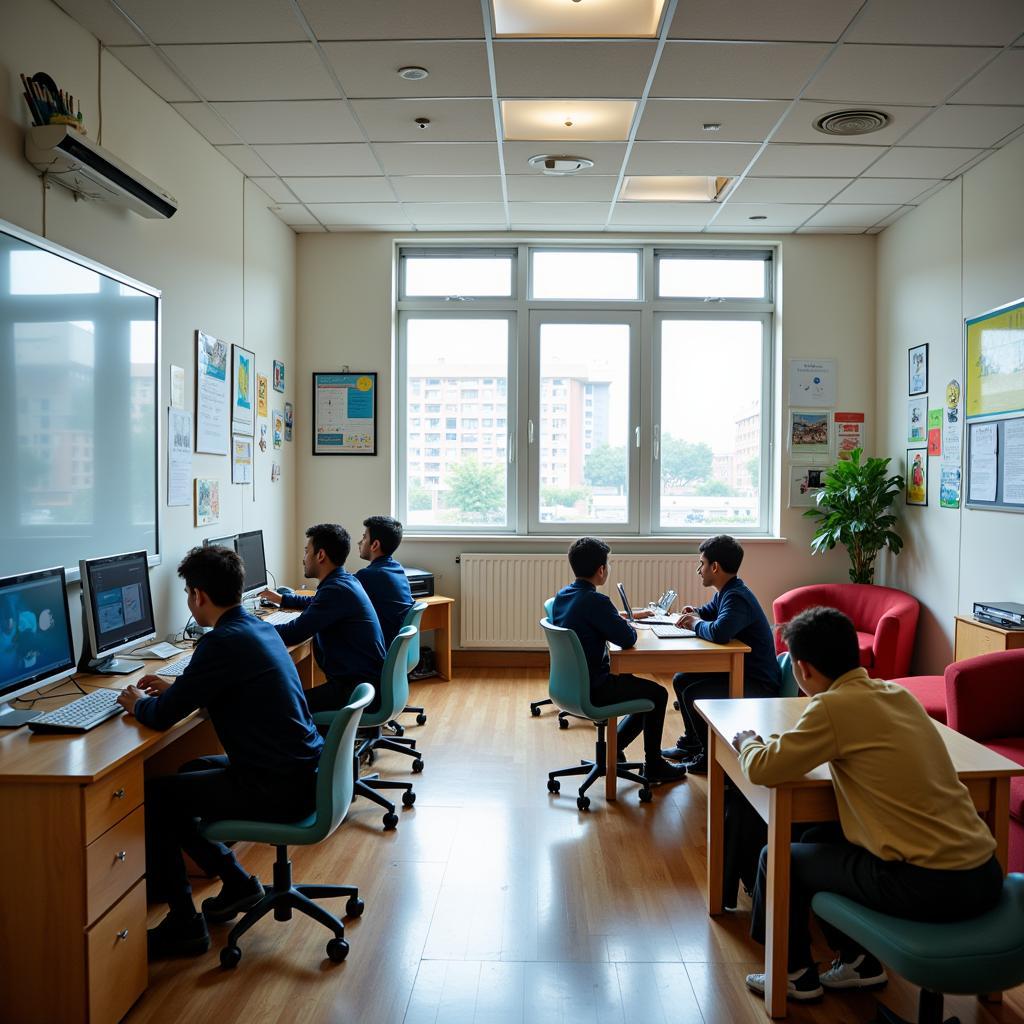Pakistan faces a multitude of challenges when it comes to education. With a literacy rate lagging behind global averages, there’s a pressing need for comprehensive reform and innovative solutions. This article delves into the multifaceted aspects of Pakistan’s education system and explores actionable strategies to elevate its quality and accessibility.
Understanding the Challenges: A Deeper Look
The issues plaguing Pakistan’s education system are deeply rooted and interconnected. Poverty acts as a significant barrier, forcing many families to prioritize work over education for their children. This is further compounded by a lack of adequate infrastructure, particularly in rural areas, where schools are often overcrowded, understaffed, or simply nonexistent.
 Rural school in Pakistan
Rural school in Pakistan
Furthermore, the quality of education itself is a major concern. Outdated curriculum, inadequate teacher training, and a rigid examination-centric approach hinder students’ ability to develop critical thinking, problem-solving skills, and creativity.
Investing in the Future: Key Areas for Improvement
Addressing these challenges requires a multi-pronged approach that tackles both the systemic issues and the on-ground realities.
1. Increased and Equitable Funding: Bridging the Gap
A fundamental step is to significantly increase public spending on education, ensuring equitable distribution of resources to marginalized communities and remote areas. This includes building new schools, upgrading existing infrastructure, and providing essential learning materials.
 Modern classroom in Pakistan
Modern classroom in Pakistan
2. Curriculum Reform: Embracing 21st Century Skills
Revamping the curriculum to be more relevant to the 21st century is crucial. This means incorporating technology into the learning process, promoting critical thinking, problem-solving, communication, and collaboration skills.
3. Teacher Empowerment: The Heart of Education
Teachers are the backbone of any education system. Investing in their professional development through continuous training, providing them with better resources and support, and creating a conducive work environment will directly translate into improved learning outcomes for students.
4. Community Engagement: A Collaborative Approach
Creating a strong link between schools and communities is vital. Parental involvement, community ownership, and collaboration with local organizations can create a supportive ecosystem for education to thrive.
Embracing Technology: A Catalyst for Change
Technology can play a transformative role in improving education in Pakistan. From online learning platforms and digital resources to personalized learning experiences, technology can bridge geographical barriers, address teacher shortages, and cater to diverse learning needs.
Looking Ahead: A Brighter Future for Pakistan’s Children
Improving education in Pakistan is not just a matter of policy changes, but a collective responsibility. By prioritizing education as a national imperative, investing in our teachers, empowering our communities, and embracing innovation, we can pave the way for a brighter future for Pakistan’s children.
FAQs: Addressing Common Queries
1. What is the current literacy rate in Pakistan?
Pakistan’s literacy rate stands at approximately 60%, with significant disparities between genders and across different regions.
2. How can I contribute to improving education in my community?
You can volunteer at local schools, donate books and supplies, or support organizations working towards educational equity.
Need Help? We’re Here for You
For any assistance related to education in Pakistan, please don’t hesitate to contact us:
Phone: +923337849799
Email: news.pakit@gmail.com
Address: Dera Ghazi Khan Rd, Rakhni, Barkhan, Balochistan, Pakistan.
Our dedicated team is available 24/7 to answer your queries and provide support.